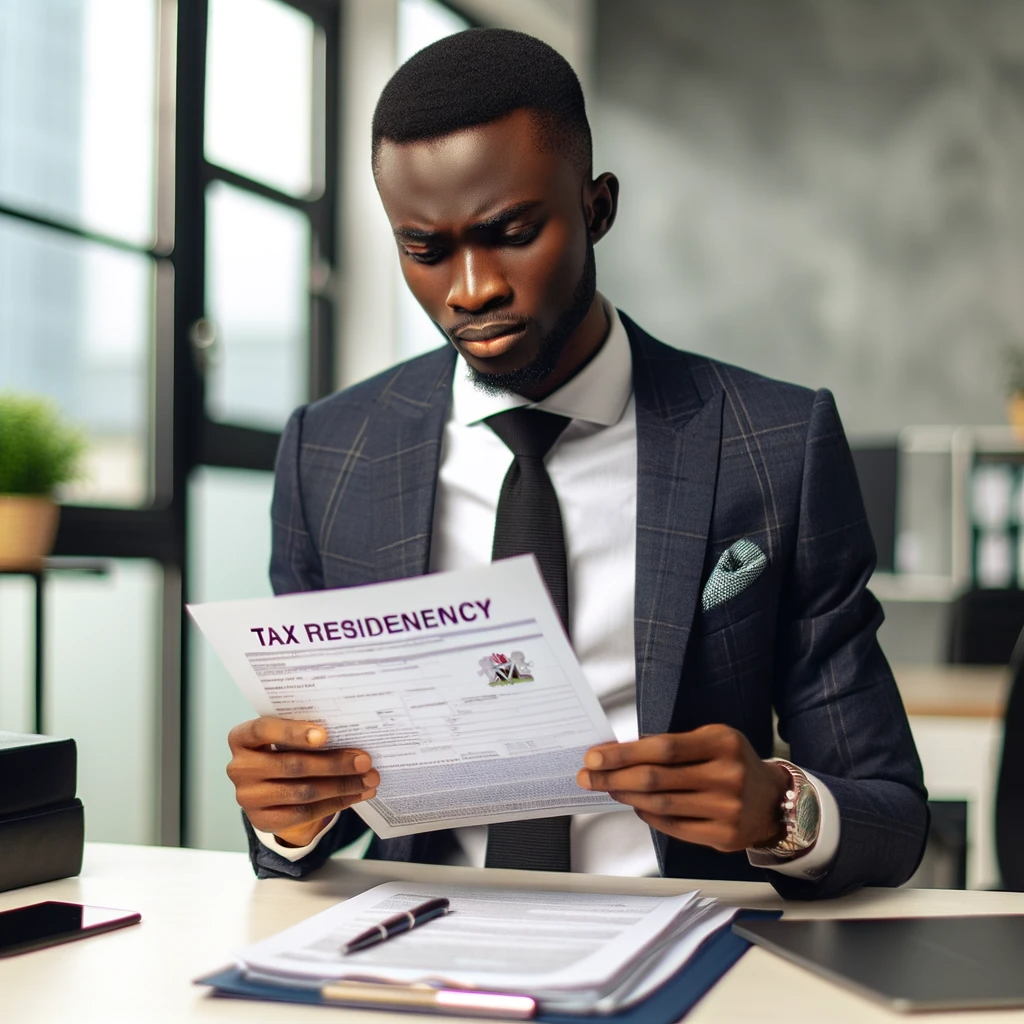Introduction
Income tax is a compulsory levy imposed on income earners in Nigeria.
Importance of Understanding Income Tax as a Freelancer
As a Nigerian freelancer, it is important to understand income tax, considering the rise in the number of freelancers in Nigeria.
Understanding income tax as a Nigerian freelancer helps you avoid penalties and ensures tax compliance. It helps you stay financially sound and avoid legal issues with the tax authorities.
It also provides a clear understanding of the tax laws governing freelancers in Nigeria, such as the eligible deductions and tax rates.
Understanding income tax also helps in proper financial planning and management of finances.
Therefore, as a Nigerian freelancer, it is essential to understand the basics of income tax to ensure tax compliance and financial stability.
What is Income Tax
Definition of Income Tax
Income tax is a type of tax that is imposed on individuals and organizations.
It is a tax that is based on the income earned by individuals and organizations.
Types of Income Tax in Nigeria
In Nigeria, there are different types of income tax that are imposed on individuals and organizations.
The types of income tax in Nigeria include personal income tax, corporate income tax, capital gains tax, and value-added tax.
What is Taxable Income for Freelancers
As a Nigerian freelancer, your taxable income is determined by the amount of income that you earn from your freelancing activities.
This includes income from freelance writing, web design, graphic design, content creation, and other freelance activities.
To determine your taxable income as a freelancer, you need to calculate your total income from your freelancing activities.
This includes income from all sources, including your clients, affiliate programs, ad revenue, and other sources of income.
Once you have calculated your total income, you can deduct your expenses from your taxable income.
This includes expenses such as your home office, internet and phone bills, software and hardware expenses, and other expenses related to your freelancing activities.
After deducting your expenses, you will have your net taxable income. This is the income that is subject to income tax in Nigeria.
As a freelancer, you are required to file your income tax returns with the Federal Inland Revenue Service (FIRS) on or before the 31st of March every year.
This requires you to provide details of your income and expenses, as well as any tax deductions or credits that you may be entitled to.
Filing your income tax returns is important because it helps to avoid penalties and fines, and it also helps to ensure that you are paying your fair share of taxes.
In review, income tax is an important part of the Nigerian tax system, and it is important for freelancers to understand how it works and how it applies to their freelancing activities.
By understanding their taxable income, as well as their tax obligations and responsibilities, freelancers can ensure that they are compliant with the law and are paying their fair share of taxes.
Read: Intellectual Property Laws for Freelancers in Nigeria
Filing Income Tax as a Nigerian Freelancer
Freelancing has become a very popular means of making a living in Nigeria. However, just like every other profession, Nigerian freelancers are obligated to pay income tax.
Here is everything you need to know to file your income tax as a freelancer in Nigeria.
Freelancer’s Eligibility to Pay Income Tax
- All self-employed individuals in Nigeria, including freelancers, are required by law to pay income tax.
- It doesn’t matter the nature of the service or profession you render, as long as you make money from it, you must pay income tax.
What to do Before Filing Income Tax
- Before filing your income tax as a freelancer, it is important to get a Tax Identification Number (TIN) from the Federal Inland Revenue Service (FIRS).
- You should also keep proper records of all your earnings and expenses throughout the year as this will be used to calculate your income tax.
How to File Income Tax
- To file your income tax as a freelancer in Nigeria, you will need to obtain and fill the Self Assessment form from the FIRS website or any FIRS office closest to you.
- The form will ask you to provide your personal details, income earned during the year, and expenses incurred while freelancing.
- Once you have filled the form, submit it to the FIRS office along with relevant supporting documents such as your TIN and bank statement of account.
Penalties for not Filing Income Tax
- If you fail to file your income tax as a freelancer in Nigeria, you may be liable to pay penalties.
- The penalties for not filing income tax include a fine, interest on the tax due, and/or prosecution.
- You may also be denied certain privileges like obtaining government contracts or loans if you do not have a tax clearance certificate.
In a nutshell, filing your income tax as a freelancer is not only a legal obligation, it is also important for your business as it shows that you are a responsible citizen and eligible for certain benefits.
Therefore, ensure that you file your income tax as at when due to avoid penalties.
Read: Freelancing in Nigeria: Top Tax Mistakes to Avoid

Deductions and Allowances for Nigerian Freelancers
As a Nigerian freelancer, it is important to understand the various deductions and allowances that apply to your income tax.
Here are some things you need to know:
Understanding Deductions for Freelancers
As a freelancer, you are allowed to deduct business expenses from your taxable income.
These include expenses such as office rent, internet, software subscriptions, and other costs that are directly related to your freelancing business.
However, it is important to note that you cannot deduct personal expenses such as food, clothing, and housing.
Business Expenses That are Tax-Deductible
To ensure that you are taking full advantage of deductions, keep track of your expenses by keeping all receipts and invoices.
You can also deduct expenses such as transportation costs, marketing expenses, and professional fees.
Personal Allowances for Freelancers
As a freelancer, you are entitled to certain personal allowances that can reduce your taxable income.
These include contributions to pension funds, health insurance, and life insurance premiums.
These allowances are subject to certain conditions and limitations, so it is important to consult your tax advisor.
Common Mistakes to Avoid when Claiming Deductions and Allowances
One common mistake freelancers make is failing to keep accurate records of their business expenses.
This can lead to underreporting of deductions, which can result in a higher tax bill.
In addition, the law does not permit some freelancers to deduct personal expenses as business expenses.
Essentially, Nigerian freelancers must understand deductions and allowances to comply with income tax laws and maximize tax benefits.
Please keep in mind that tax laws and regulations may change, so staying updated is crucial.
Consult a tax expert for guidance and assistance in preparing your tax return.
Read: How to Register for Taxes as a Freelancer in Nigeria
Tax Filing Deadline and Penalties
As a Nigerian freelancer, it is important to understand the tax deadlines in Nigeria and the consequences of not filing your taxes on time.
Failure to comply with these deadlines comes with several penalties that could negatively impact your finances and impair your reputation as a professional.
Here are some important things to keep in mind:
Understanding Tax Deadlines in Nigeria
- In Nigeria, the tax year runs from January to December, and individuals must file tax returns by March 31st each year.
- Monthly tax returns should be filed by the 10th of the following month.
- Taxpayers with tax deductions or applicable tax credits must file a self-assessment tax return by the end of April of the succeeding year.
- If you know you won’t be able to meet these deadlines, contact the Federal Inland Revenue Service (FIRS) as soon as possible. They may be willing to grant you an extension.
Late Filing Penalties for Freelancers
- Filing your tax return after the deadline results in incurring a late filing penalty. Individuals face a penalty of N50,000, while corporate bodies face N50,000 plus N10,000 per day outstanding.
- Failure to file your tax returns on time can also lead to interest accumulation on unpaid taxes and a legal action against you.
- Always ensure to keep accurate tax records to avoid any misunderstanding that may arise in case of inquiries.
Consequences of Not Filing Taxes on Time
- Not filing taxes on time is a breach of the law, and you could face legal action as a result.
- If you’re a freelancer, you may lose out on potential clients who may question your lack of financial prudence and accountability.
- You may also have to pay hefty fines and penalties, which could adversely affect your finances.
- Failure to comply with tax laws in Nigeria can lead to blacklisting by tax authorities, hampering future professional activities.
Basically, as a Nigerian freelancer, you are legally bound to file your taxes in a timely and transparent manner.
Late filing or non-compliance with tax laws could harm your professional reputation and impact your finances negatively.
To prevent consequences, ensure adherence to tax deadlines in Nigeria and maintain accurate financial records.
For any tax compliance questions or concerns, consult the Federal Inland Revenue Service or seek advice from tax professionals.
Read: Tax Compliance in Nigeria: A Freelancer’s Guide
Conclusion
Understanding income tax as a Nigerian freelancer is crucial for financial stability and legal compliance.
To recap, freelancers must register with the tax authority, keep accurate records of income and expenses, and file tax returns promptly and accurately.
If necessary, it’s best to seek professional help for filing taxes to avoid errors and potential penalties.
Emphasizing the consequences of not paying income tax includes imposing heavy fines, legal action, or damaging reputation.
Freelancers contribute to the country’s development and access social amenities like good roads, education, and healthcare through income tax.
Lastly, by understanding and fulfilling their tax obligations, Nigerian freelancers can build their credibility, increase their earning potential, and secure a better future for themselves and their families.




